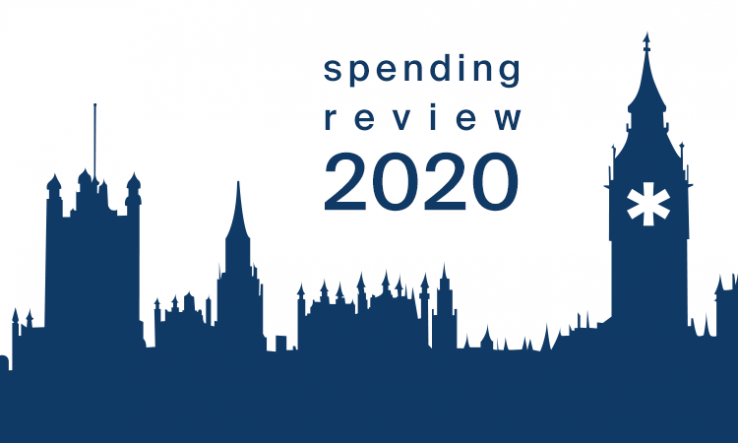
Settlement includes £11bn for BEIS R&D funding, with a £400m uplift for UKRI
The UK government has promised almost £15 billion for R&D over the next year, in a spending review dominated by the coronavirus.
“We’re making this country into a scientific superpower with almost £15bn of funding for research and development,” chancellor Rishi Sunak told MPs as he outlined the government’s spending plans for the year ahead.
“As we invest billions in research and development, we’re also introducing a new immigration system ensuring the best and brightest from around the world come here to learn, innovate and create,” he added, referring to the previously announced points-based visa system and the Global Talent visas.
According to the accompanying government documents, the Department for Business, Energy and Industrial Strategy has been awarded £11.1bn in R&D funding for the year ahead, up from £10.36bn this year.
This includes an uplift of £400m on average per year until 2023-24 for core UK Research and Innovation budgets, while Innovate UK core programmes and infrastructure will receive at least £490m in 2021-22.

A further £350m has been awarded to UKRI to support “strategic government priorities, build new science capability, and support the whole research and innovation ecosystem”.
While there is no explicit mention of the government’s plan to create a research agency based on the UK Advanced Research Projects Agency, the documents say this sum will include the “first £50m towards an £800m investment by 2024-25 in high-risk, high-payoff research”, suggesting the agency may have found a home within the funding body.
BEIS’s settlement also includes £733m for the UK Vaccines Taskforce to purchase successful vaccines for Covid-19, part of the £6bn pot the government has provided to procure vaccines. Of this amount, £128m will go towards UK vaccines R&D and funding for the Vaccines Manufacturing Innovation Centre, which aims to produce enough vaccine doses for the entire population in six months.
The chancellor also announced a £4bn “levelling-up fund”, which will be administered by the Treasury, housing and transport departments. However, it is unclear if the fund will have an R&D element.
Meanwhile, in a move likely to be welcomed by the devolved administrations, which have benefited substantially from European Union structural funding set to come to an end after the Brexit transition period, Sunak announced the rollout of the long-awaited UK Shared Prosperity Fund (SPF).
“Over time, we will ramp up funding so that total domestic, UK-wide funding will at least match EU receipts on average, reaching £1.5bn a year,” he told MPs. “To help local areas prepare for the introduction of the SPF, next year we will provide funding for communities to pilot programmes and new approaches.”
Though, again, there is no indication yet if the fund will include an R&D dimension.
Joe Marshall, chief executive of the National Centre for Universities and Business, welcomed the commitment to invest £15bn in R&D, which he described as “paramount in the nation’s recovery from Covid-19”.
“Whilst almost all announcements made today offered funding for one year only, the chancellor sent an important signal of the importance of steady, long-term funding for research,” he said.
“He made a multi-year commitment for an uplift of more than £400m on average for UK Research and Innovation per year for the next three years. Further investment in UK research will allow us to build a more resilient, productive and innovative economy.”
He added that it was “imperative for the nation’s future” that the government does not lose sight of its promise to spend £22bn on R&D by 2024-25.